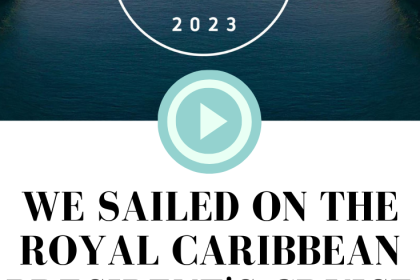Over the past few years we’ve been leveraging credit card signup bonuses to travel for free. Check out this episode to get the basics on how to do it, and tips on how to make the most of it so you can travel for free on an upcoming trip!
Listen and Subscribe on: Apple Podcasts, Spotify, Google Podcasts
Resources
- Our podcast episode on travel hacking with Jet Set Lisette
- The best credit cards according to The Points Guy
- Search engine for point values (point.me)
Transcript
Jess: Welcome to the Jetsetting Family Travel Podcast. I’m Jess. And I’m Rod. And today we’re talking all about credit cards.
Rod: Get ready to dive into the rabbit hole that is travel hacking.
Jess: We, I’m just going to put this out there, aren’t like, I would say the most expert travel hackers with credit cards. You can do it.
On a super surface level, just to get some of those perks, and then you can literally learn to travel for free and be an intense travel hacker. I’d say we’re somewhere in the middle. We have a good understanding of how the process works, but we’re not, we’re
Rod: not the points guy, right? So if you want to go into the more advanced travel hacking techniques and things like that, then you’ll probably want to follow that.
But for today’s episode, what we wanted to do is do a little bit of a refresher on what travel hacking is. What are some of the benefits that you get from credit card points and what are some of our favorite credit card perks also that you get in addition to getting the points when you spend the money on there.
But I think from the ultimate basics, this golden rule is the one thing that makes it all possible. Credit card companies, they earn their money and their revenue from the interest that accrue every month when you don’t pay off your credit card for travel hacking. What you want to do, and the ultimate rule is you have, have, have to be paying off your balance every month because even one month of keeping that balance open, if you have a 20% interest rate, you’re going to be paying a whole lot of money back to the credit card company. So make sure that you have the discipline to be able to track the spending.
Make sure that you can pay for everything that you spend on the credit card and zero out those credit cards every month. That’s when you start to really take advantage of the
Jess: benefits. Yes. I feel like to truly get all of the benefits of using credit cards, you are going to end up not everyone, but if you want to scale it, you have to open several credit cards.
And so if you’re not trusting yourself to be financially responsible, maybe take it really slow because you don’t want to open five or six credit cards and then slowly things get outta control. So, yeah.
Rod: Yeah. And I think from a, from a basic perspective, starting with one credit card is a great idea because the majority of the bonuses that you get happen at the very beginning.
And what you’ll see, I don’t know if you get these letters in the mail when they say, Hey, open up a credit card with us and get 70,000 bonus points by opening this card. And the fine print there is that you have to spend a certain amount of money usually within the first three months in order for you to be able to get that bonus.
And that bonus itself is pretty significant if you’re getting 70,000 miles just for spending on that credit card. Typically what you see is that. Your points are valued at somewhere between one to 2 cents per point. So for example, 70,000 points of introductory bonus offer that has a value of either 600 to $1,200, which will automatically have a pretty big boost.
Towards being able to pay for travel, pay for hotel stays, airline tickets, things like that. So that’s, that’s one of the things that people do is they open up multiple credit cards, make sure that they’re hitting those introductory bonuses. After a while, they close those cards, then they open up new ones, get new bonuses, and repeat that over and over again.
Granted, there are limits. Usually, Chase, cards, which usually have some of the best types of perks and bonuses. They have this 5/24 rule, which means that they typically only allow you to have five credit cards within a 24-month period. So, you know, if you want to really get into depth with this, you can time out.
When am I opening which cards? And using that as a way to really go into the hundreds of thousands of points where you can redeem some really, really cool stuff.
Jess: Something important to note is most of the credit cards we’re talking about today do have their, like introductory annual fees per se. These fees on some of the better cards are $500 a year.
And I know it sounds like a lot of money. Why do I want to pay to have a credit card? But when you really look, and if you’re willing to utilize the perks and the bonuses that come with the cards, usually you end up in a way better position and the $500 ends up being minimal. Something super, super important to note is if you’re an active-duty military family, like Rod’s currently a reservist, some of the cards are active duty military and some also include reservist.
They will waive the mil, the annual fee for you. Yeah, so it’s an even more incredible perk because for our family, all of the cards in Rod’s name, we have incredible, incredible perks and we pay zero annual fee on some of our favorite credit cards. We actually have a card in Rod’s name and a separate card in my name, so I do, even as a military spouse, have to pay the annual fee to us.
We truly think it’s worth it because of some of the perks we’re about to talk about.
Rod: So every credit card is going to have its own set of different perks. And just to give you an example, here’s some of the credit cards that we have and that we love to use just because it’s easy to accrue points on. Sometimes they have different offers that you can redeem, but I’d say our most common card is the Chase Sapphire.
And there’s two different tiers of this card. The first one is the Chase Sapphire Preferred. That one has a lower annual fee is usually around a hundred dollars. That’s the card that Jess has. And then I have the Sapphire Reserve, which has, I think it’s like $500 for the annual fee. But what some of the perks that we get from there.
I think the biggest one there is the Global Entry. And keep in mind, we’re recording this in May, 2023, so these. Credit card perks and the bonuses and the different types of offers, they’re going to be varied depending on what month or when you’re listening to this podcast. So always make sure if something that we’re saying doesn’t sound right, double check it, because it may have changed.
For example, I think the Chase Sapphire Reserve right now has an offer where they will reimburse you for applying for Global Entry. So from a travel perspective, global entry I think usually costs around a hundred dollars. It includes TSA Precheck, so it makes international travel and even, and getting through airport security so much easier.
And if you pay for Global Entry using that Chase Sapphire card, then you’ll get that reimbursement. You’ll also get reimbursements for an airline spending. So every year you can designate an airline and they will reimburse up to $200 in fees. I don’t think it’s the tickets themselves, but things like seat selection, baggage, wifi, and things like that, so that you know those that.
Annual fee that you’re getting. If you tend to travel and use the card when you’re buying those tickets, then you get that in return.
Jess: One of my favorite perks of these credit cards is the clubs and lounges at the airports. For me, this is a huge, huge perk because Rod and I can be pretty cheap when booking flights and when you’re pretty cheap with booking flights that means a lot of times you end up with a very long layover. And so. It just happens. Sometimes you can save a thousand dollars having, you know, a longer layover. So with that, the American Express comes with American Express lounges. It’s one of my favorite lounges, to be quite honest. They’re awesome.
They’re awesome. You get free drinks. You can have like a beer and some food. There’s usually a cool place to rest with the kids. The one downside of that is American Express lounges aren’t as, readily available. There just aren’t as many of them. But when you do find one, it’s glorious. The Chase Sapphire, it’s only on the Reserve card, I believe.
So you need to be careful because since there are different tiers of Chase that you know which one comes with the perks, that comes with the Priority Pass lounges. So you have to enroll separately, but you’ll, it won’t be for a fee. It’s free and you become a Priority Pass member. And those lounges are readily available throughout all different airports around the world.
And it’s just an incredible perk to be able to go and have your layovers there and feel comfortable and for the kids normally to have a place to connect and just have comfortable seating. To me it’s a huge, huge, huge perk of the Chase card and the American Express card. I’m sure other cards offer that, but those are the two we utilize personally.
Yeah. To get those lounge access. Yeah.
Rod: And the Amex has different tiers as well. There’s a gold card and there’s a platinum card. I think the Platinum is the one that’ll get you the Amex lounge. Access as well. So make sure that you’re checking in on that. I think sometimes from a, from a beginning perspective, you do have, you know, they are going to check your credit when you apply for these cards.
So depending on what your credit score is, you might be limited to a certain tier of card. And maybe as you continue to pay off the card and you see your credit score rise, then you can apply to the next tier.
Jess: So one more thing on the lounges, just cause I forgot to mention it, is a lot of the cards only come with one or two guests.
So if you have a larger family, we’re a family of four. For us to get in the lounge, we had to get an American Express Platinum for Rod. And that one had no fee because he’s military. And then I opened one in my name as well. With the two cards each, with one guest, the four of us can get in. But that’s something if you’re like a family of seven and your family’s not going to divide and conquer, is that perk really that important to you?
I mean, those are things you need to just look at when you’re evaluating the card.
Rod: Yeah. Yeah. And another one of the big perks that you get is purchase protection. And there’s a whole bunch of insurance perks that you get when you get one of these credit cards. So, for example, if you purchase for us, we, we bought a camera using our credit card and we paid it off thankfully, but we ended up leaving it in a taxi in Berlin.
So for a day we thought we had completely lost it. We started looking into whether Chase had purchased protection for that. There was a time period where they will essentially ensure your things due to lost or theft. Up to 120 days. I think we were about 150 days into the purchase. So, that sadly did not qualify.
Thankfully, we found the camera later on, but check, check into that. Make sure if you’re having some pretty high-ticket items that you either don’t have homeowners or property or rental insurance on, then you can always rely on the credit card coverage to be able to, you know, make it a little bit easier if you do end up having a loss and you can put in a claim for that.
Jess: And a lot of these credit cards also provide rental car coverage. So if you’re using that card to access your rental car, there’ll be coverage in case of a collision or theft. I know some of our cards actually get you into a higher tier of that rental car program as well. So like we are Hertz, I forget what it’s called.
Yeah, the Gold Plus, Gold Plus member. So we get upgraded cars for free and that was strictly because we had a credit card. They’ll also, a lot of the credit cards, if you book your trip using the card. You get trip cancellation or delayed insurance. So this says, for example, with the Chase Sapphire preferred you get reimbursed up to 10,000 per person and 20,000 per trip for prepaid non-refundable travel expenses.
If your trip is interrupted by sickness, severe weather, or other covered situations. If your travel is delayed by more than 12 hours, or the delay requires you to stay overnight, you’re covered up to $500 per ticket for expenses like meals and hotels stay, super nice. That’s an incredible perk to have when you’re purchasing a trip.
You never know what’s going to happen. When Rod and I went on our honeymoon, severe weather diverted our flight somehow. We both were so tired from the wedding. We fell asleep when we took off. And when we woke up, instead of being in Jamaica, we were in Dallas, Texas. And back then we didn’t know about these credit card perks, so we were totally unprepared and.
It was just, it was an unfortunate situation. And so now looking back, I feel like I have a lot more peace of mind knowing some of our credit cards provide us incredible coverage. If there is severe weather or if a change of plans happen or someone’s sick, we’re not completely out that money.
Rod: Yeah. And speaking of status for rental cars, there’s other perks that you get in terms of status.
There’s some hotel cards, so for example, American Express has a Hilton branded set of cards. I think they’re called the Aspire and the Ascend, and those are the different tiers of it. But sometimes when you open up that credit card, then you get the immediate, I think, bump to either gold or diamond on Hilton.
And I think all the other brands like Marriott, they have their own branded cards that will, try to incentivize you into getting the card by giving you the higher tier perk. Another perk that you get actually with the hotel cards that are just really nice is you get. One free night every year, and you can redeem that based on availability at any Hilton property in the world.
And we ended up using that last year when we went to Iceland, we wanted to spend a night at a nicer hotel in downtown Reykjavik, and we ended up booking a Hilton property there that was super nice. It, you know, was totally worth it. It was free and I think we saved, maybe that was like $700 for that night.
To be able to stay at that property. So that was super cool.
Jess: And some people I noticed, they stack their free Hilton one-night stays and they will go to like Bora Bora or the Maldives somewhere. You want to use those free one-night stays at a very expensive places, nice hotel, not like, I don’t know, your local staycation.
And then, so sometimes what people will do is, because when you’re using these credit cards, you’re also accumulating points that convert to points you, you can use to book travel for free. So say they go to Bora Bora for seven nights, maybe they have three free nights they’ve accumulated, they’ll use those three, they’ll book the rest with points, and then they can have a very, very cheap trip.
Yep. So that’s why it’s so important when you see those sign-up bonuses that are like 75,000 free points. You want to try to snag those because those points convert and it’s. It’s just those bonus entries are where you really get those bulk of your points that you’re going to be able to utilize in the future.
Something important I don’t think we’ve mentioned yet, is that, You need to be very careful when you sign up. So say it says like a $75,000 point bonus by enrolling in Chase Sapphire, or whatever card it may be. You typically have so long to spend a certain amount of money in order to receive that bonus.
And that is critically important. So like, say one of the cards, it’s, you must spend $4,000 on purchases in the. First three months of opening an account. If you don’t do that, you don’t get the bonus they might be offering, and then you’ve kind of just wasted opening a card. You’ll get other points, but like you lose a huge point value.
Rod: that, that’s the biggest boost that you get. I mean, there are credit cards where some of them have a three x or five x bonus. So for example, chase cards typically give you five times the amount of points if you book travel using their own travel portal. So for every dollar you spend, you get five points for that.
And they have the same for restaurants, for shopping, for groceries. So if you really, really wanted to get into the weeds with this, and what we’ve seen some people do is they have, you know, six different credit cards. They put little labels on each of them that says, this one’s for travel. This one’s for our dining.
This one’s for groceries, this one’s for other types of shopping. And that way they’re really racking up the points by using the multipliers. And ultimately when you are planning a trip and you have 500,000 rewards points, That, you know, that’s 5,000 plus dollars of bonus that you can leverage into getting a bunch of free hotel stays.
A lot of people, they end up transferring that over to their airline rewards programs and turn them into miles, so then they end up either getting free tickets or they get even free tickets in first class just because those providers also have their own specials that happen every now and then. So it’s always great to be having those credit card points.
And then when it’s time to redeem them, you can either use them through the portal that that provider uses. So for example, Chase has their Chase Ultimate Rewards portal, and you can redeem it for a whole bunch of stuff on there. Or you can transfer those points to the other company, like the hotel or the airlines that you do.
And if they’re running that deal, then you get even more value from it. So that’s where, that’s my favorite part. Whenever we go on a trip, it’s like, oh, for example, we’ve got this, road trip coming up the east coast for the summer and whenever we have to make a one-night stop. Somewhere, and we know that we’ll have to stay in a hotel temporarily.
As we make our way up to New York and Massachusetts, then it’s easy for us to know that we can just log into our Chase Ultimate Rewards portal, take a look at the map at what’s available. A lot of them also have discounted stays where we’re paying 10,000 points just to be able to stay there for the night.
And it’s, you know, no additional cash out of our pocket. Saves us money that we can spend into excursions and experiences and things like that.
Jess: So Rod mentioned that by transferring points you need to be careful because sometimes by transferring your points into a carrier you get better deals.
And so how you book using your points matters. This is where people like the points guy and other points experts really get to the nitty gritty. But I did discover something this year that I used on one of our trips just to kind of see how to book. It was called Point Me. And this is kind of a website.
It’s a better way to book with your points. And it, when I searched for our trip, showed me all the different ways I could book with those points, whether it was booking through the airline or, and it kind of told me by transferring points to certain rewards programs, that’s how I would get the most value out of my points.
And that’s how the part where I sometimes get overwhelmed when we use points to travel and I’ll just go to Chase and just book it however, and not really do my research because sometimes it can seem overwhelming. I do think point me. Helped with that aspect. Since I am not the most travel expert with using points, we’re really good at using perks, using points to their max value is somewhere where we’re not probably the best at.
But I thought point Me was a really, really good program. It’d be interesting to see what other people thought of the program who have used it versus doing all of the research on their own. But some of these people out there who you see truly only travel for free on points, they spend a lot, a lot of time researching.
The ins and outs of how to maximize points.
Rod: Yeah. It reminds me of the people that do the coupons and you see all the Facebook posts that go viral. It’s like, here’s my, you know, grocery cart full of stuff and I only paid $2 for it. They probably spent a whole bunch of time clipping coupons looking into when the sales would happen.
So if you want to do that with credit cards too, then you absolutely can. Right? But to summarize, I think it’s very easy to get started given. We probably should have made the disclaimer at the beginning. We are not financial certified professionals, so whatever recommendations that we’re giving you take them with a grain of salt.
And with that said, I think what I would do and what I’ve seen a lot of the points experts recommending is if you do start with one card, just start with the lower tier of it. So for example, the Chase Sapphire Preferred. Make sure that you’re hitting that spending bonus in the first three months.
I think it’s like $9,000. So it’s like 3000 a month, right? So make sure that you can charge it on the card, pay it off every month, get that initial bonus. Use it to, you know, pay for a next trip or a hotel stay, or you can even redeem it for cash back depending on what it is that you want for, but start getting that little benefit.
And what that little benefit does is it incentivizes you and motivates you to open up the next card. And before you know it, you can have four to five cards. You can close the ones that you don’t want to pay the annual fee for the subsequent year. So that you can open up the next one and get more introductory rates and bonus points with the initial spend.
So you go into this cycle of opening, spending heavy on it to get the bonus. Maybe you maintain and do minimal spending while you open the next one, and then you manage it that way so that you get that maximum introductory bonus coverage. So, yeah, it’s a very fun thing to do. It is time consuming, but.
The benefits of knowing that you, you’ve been able to book a trip for free by basically just spending and paying off credit cards is an amazing feeling.
Jess: It is an amazing feeling. I feel like you’re rewarded for being somewhat responsible. Right. One perk I forgot to mention that I think is important because it adds up, is a lot of these cards have no foreign transaction fees.
So it makes them a great source to use when you’re abroad. But it’s always important to call your bank before you travel internationally or sometimes, they will freeze your account. Yep. That has happened to us in the past. It is not fun.
Rod: Yeah. And what’s really nice is, yeah, then when you go to that foreign country and you pay, you can pay using that foreign currency because they’ll always ask you, do you want to pay in US dollars or do you want to pay in the whatever currency of the country that you’re in?
If you’re having one of these credit cards, you should always pay in the foreign currency because you’re going to get a better rate from your bank than you are from that provider that’s giving you .Yes.
Jess: So credit cards are super powerful. They are great. It’s something that I want to start diving into more personally as well and learning how to be the ultimate point hacker.
But until then, I’ve really just enjoyed the perks that we have gotten for it. I loved our stay that we had for free for two nights in Iceland. It was funny, right when we got back from Iceland, I can’t remember what show we were watching. Ooh. It was the Flight Attendant the last season, I believe. Yeah, the, that hotel was featured in that series.
I’d love to know if you watched that series on a totally different random note because the last season threw me through a loop and I did not understand what was going on. But the hotel we stayed at was there and it was really cool to see that because it was a beautiful hotel and I feel like we would’ve never spent $700 a night out of our own money because I’m too cheap for us to do that.
Rod: Yeah, so we’ll link a bunch of the resources on our show notes. You can access our show notes by going to www.thejetsettingfamily.com/episode53, and we’ll be able to point you in the right direction, show you some of the latest and greatest. Credit card deals and introductory bonuses. And as always, if you did enjoy this episode, then make sure that you subscribe to it so you can get notifications.
And every time that we release an episode on Tuesdays, you’ll make sure to be one of the first to know. As always, feel free to reach out to us at hello(at)thejetsettingfamily.com. You can find us on Instagram and we’d be happy to help you with your next trip.
Jess: And we’d also love if you took a little moment and wrote a review.
I feel like we get so many positive messages in our Instagram, a box about our podcast, and they truly warm my heart and just put a big smile on my face. But if you guys have time to leave an actual review on whatever platform you’re listening to us on, that always helps us grow our podcast as well. Yep.
So until next time, Happy Jetsetting!










